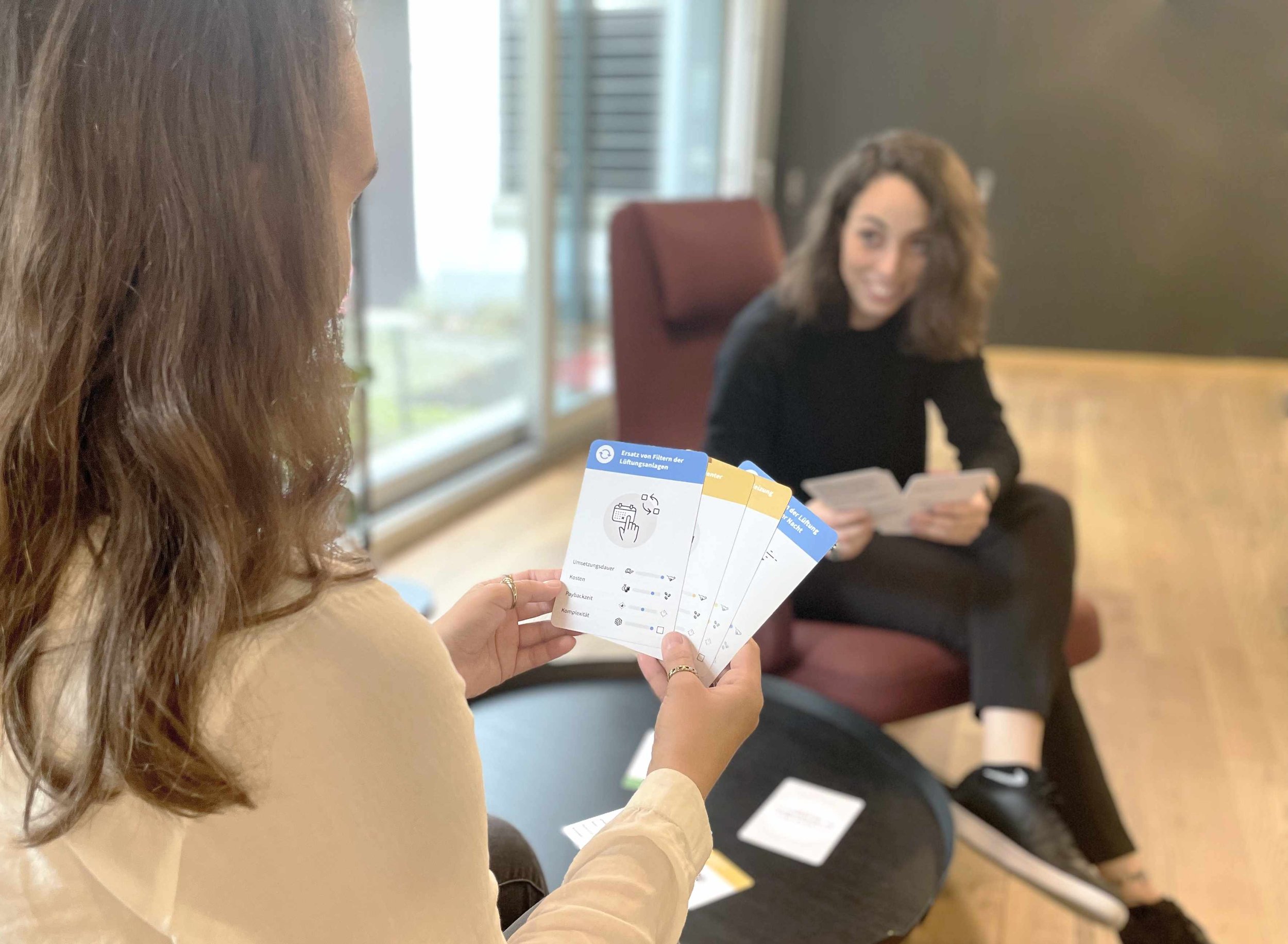
Hotellerie Swiss & act Cleantech Agency & Swiss Federal Office of Energy
How can we identify and communicate easy-to-implement and effective energy efficiency measures for Swiss hotels?
Public & Private Organisation | Energy Efficiency | Quick Wins | Product Design | Qualitative Research
Context
This project was an initiative supported by the Swiss Federal Office of Energy (SFOE) to test and evaluate approaches to increase the energy efficiency of SMEs based on behavioural insights. It is one of several innovative pilot experiment emerging from the behavioural intervention catalogue and contributes to the Swiss energy strategy 2050.
Challenge
How can we identify and communicate easy-to-implement and effective energy efficiency measures for Swiss hotels?
The market for energy efficiency solutions, funding programmes and advisory services is complex. Companies often struggle to find their way around which efficiency measures to choose and implement. Affective was asked to address this challenge with a human-centred perspective and identified “quick wins” for greater energy efficiency in the Swiss hotel industry.
The ultimate aim was to present simple yet effective measures increasing energy efficiency that can be implemented with little resources and in a short timeframe. Affective aimed to communicate and distribute the quick wins in a gamified way to hotels within the membership base of HotellerieSuisse (the Swiss association of the hotel and accommodation industry).
Approach
Firstly, Affective and its project partner act Cleantech Agency Switzerland discussed and defined the underlying behavioural challenge of bringing energy efficiency measures into SMEs.
Secondly, the broad characteristics of energy efficiency quick wins for Swiss SMEs were set out to establish a common understanding of the project outcome.
Thirdly, desk research of relevant literature on concrete energy efficiency measures in companies was conducted. Moreover, a comprehensive quantitative analysis of more than 11’000 energy efficiency measures from the BFE’s and act’s “Zielvereinbarungs-Database” was performed.
Fourthly, based on the desk and quantitative research insights, potential quick wins were identified, verified and contextualised in qualitative expert interviews with experienced energy consultants.
Fifthly, the gathered insights were adapted specifically for the hotel industry and transferred into a behavioural science-informed card deck design, ensuring easy usability and applicability for the target audience in a fun format.
In the last steps, the quick win cards were distributed with an energy efficiency campaign across all members of HotellerieSuisse and made available for download on their website.
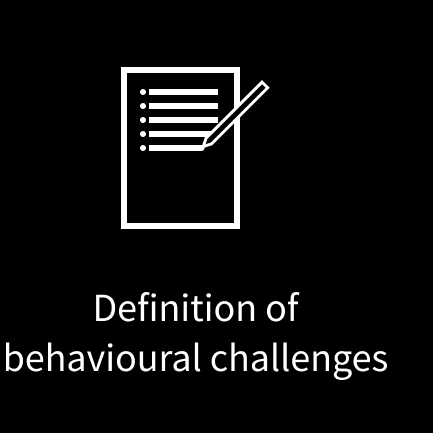
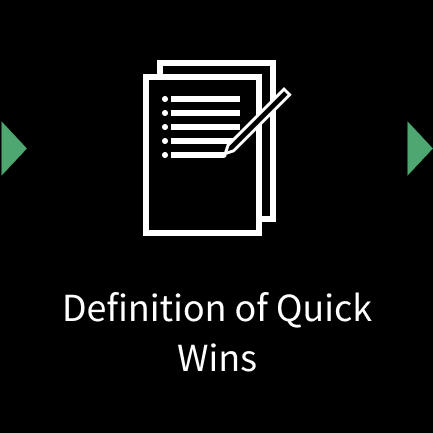
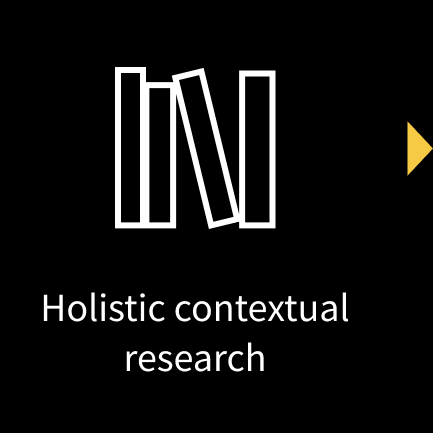

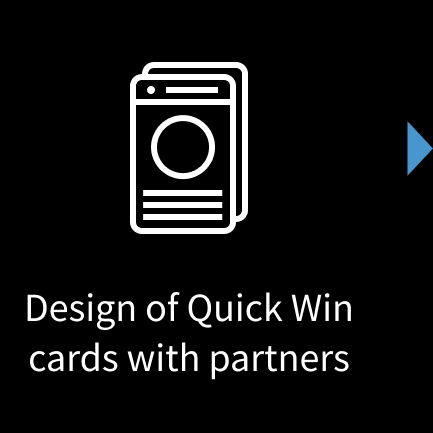
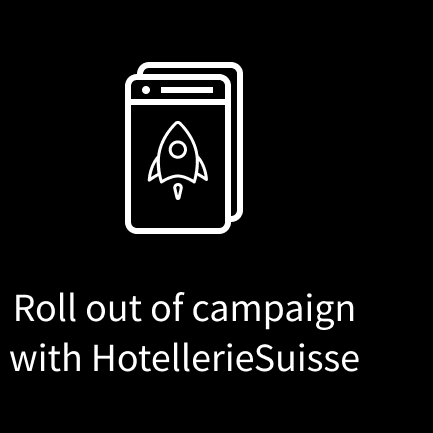
Concepts
As a result of the comprehensive desk research, we identified several behavioural science concepts which contribute to effectively addressing and implementing energy efficiency measures, including a review of academic studies and a quantitative and qualitative analysis of energy efficiency measures from our project partner act. Selected concepts include among others:
Choice Overload
Availability Bias
Bandwagon Effect
Processing Fluency
Salience
Framing
Deliverables
The deliverables resulting from this collaboration were nine engaging, handy, and actionable intervention play cards (3 measures in 3 categories). The cards were designed to be downloaded or printed. They use simple language that can be understood without being an expert in energy efficiency.
The front page shows an overview of the most important features for each efficiency measure. The back includes background and practical implementation instructions.
Reference
“Affective convinced us with a really innovative product. We really liked the data-based people-focused approach. The result speaks for itself and is still successfully in use today.”
Andrea Grossenbacher, Business Development Specialist, HotellerieSuisse

